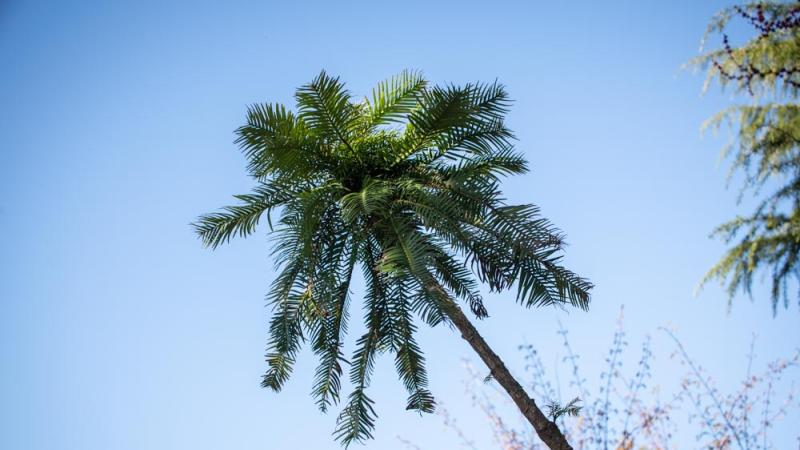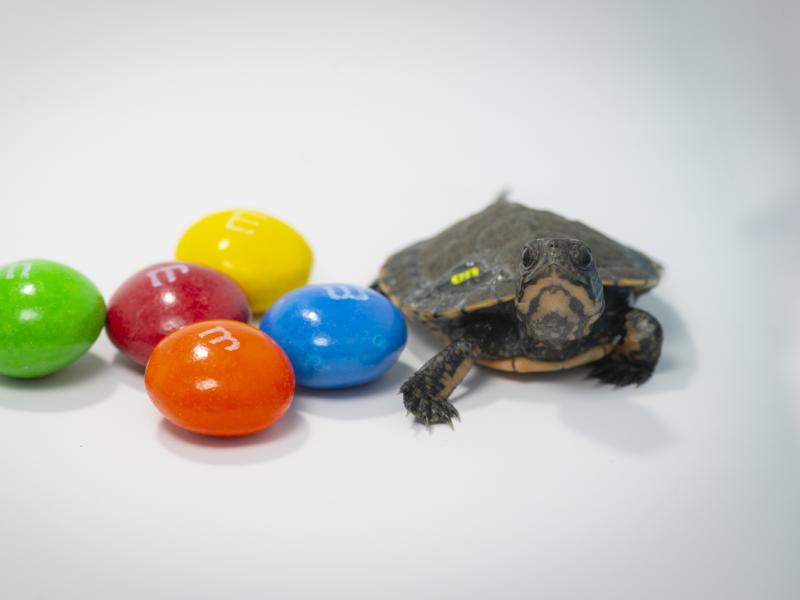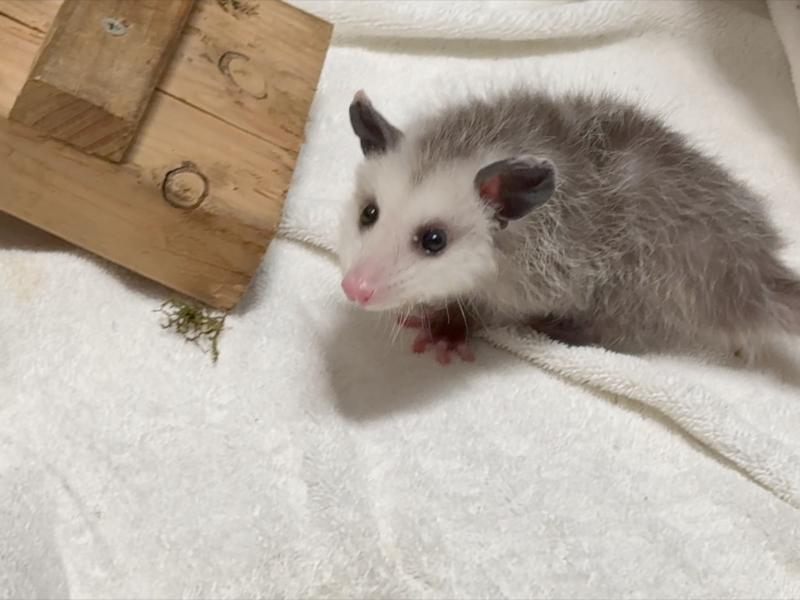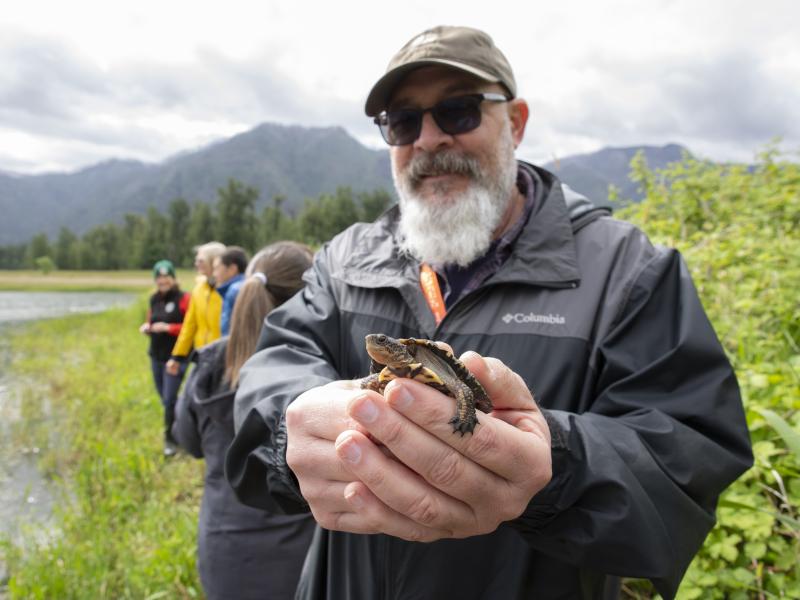Rare 'dinosaur tree' is growing up at the zoo

Critically endangered Wollemi pine is the last of a tree family that predates dinosaurs
A former fossil is alive and well at the Oregon Zoo. The Wollemi pine, long thought to be extinct, is making a small but mighty comeback with the help of horticulturists around the world — including right here in the Northwest.
Last month, the zoo’s horticulture team received a 6-foot Wollemi pine from colleagues at the nearby Hoyt Arboretum.
“Wollemi pines are extremely rare, and conservationists are working around the world to save them,” said Seth Menser, who oversees the zoo’s horticulture program. “We’re honored to be part of the effort.”
Though native to Australia, a select number of the endangered trees are being planted around the world to safeguard them from total extinction. Until 1994, biologists only knew of the Wollemi pine through fossils. The discovery of a living specimen in New South Wales that year is considered “one of the great biological reincarnations of all time,” according to The Washington Post.
“A Wollemi is different from the pines we’re used to in the Pacific Northwest,” Menser said. “It’s related to conifers of the southern hemisphere, including the monkey puzzle tree.”
Menser and his team planted the Wollemi pine on zoo grounds last month in honor of Arbor Day. Zoo guests can see the “living dinosaur” at Elephant Lands near the entrance to Forest Hall.
More News

Tiny Endangered Turtle Hatchlings Arrive At Zoo
Seventeen northwestern pond turtle hatchlings, each about the size of a walnut, are making themshellves at home at the Oregon Zoo this summer.June 4, 2025

Awesome opossum! Orphaned baby finds new home at zoo
A tiny opossum found wandering earlier this month has made his way to a new home at the Oregon Zoo.May 28, 2025

Zoo, partners return 19 endangered turtles to wild
Zoo-reared northwestern pond turtles are released in the Columbia River Gorge It was a shell-ebration last week for 19 northwestern pond turtles reared at the Oregon Zoo. In addition to partners from the Washington Department of Fish & Wildlife and U
May 19, 2025

